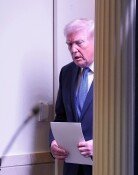Did labor party take orders from North Korea?
Did labor party take orders from North Korea?
Posted May. 19, 2012 08:54,
The now-defunct Democratic Labor Party of South Korea, which was led by pro-North Korea activists of the 1980s and 90s, was confirmed to have followed directives from the ruling Workers` Party of North Korea. The labor party`s National Liberation faction, which followed North Korea`s "juche (self-reliance)" doctrine, took control of the labor party after its rival faction People`s Democracy bolted from the party because of the National Liberation faction`s pro-North leaning. Though the labor party was merged with two other minor opposition parties to create the United Progressive Party, those who followed Pyongyang¡¯s directives have formed the main faction of the progressive party.
The international liaison department of the Workers` Party of North Korea, which is now called "Bureau 225" and supervises operations against the South, gave directives to Ilshimhoe, a South Korean spy group for the North in which certain leading members of the labor party were involved, on who should be appointed candidates for the labor party`s leadership posts and how the supreme council should be formed. The result of the January 2006 in-house election of the party was in line with the North`s directives. Ordinary party members might not have been aware of the directives, but the labor party deserves criticism that it was a South Korean branch of the North Korean Workers Party. Right after the labor party was founded in January 2000, the communist country ordered its followers in the South to continue their struggle with the labor party at the center.
The Wangjaesan spy group case in August last year also involved the labor party receiving directives from the North`s ruling party. In March 2011, Bureau 225 ordered Kim Deok-yong, the leader of the Wangjaesan group, to study joining hands with the labor party to win parliamentary seats and policy guarantees. The labor party founded the progressive party and formed an alliance with the main opposition Democratic United Party in the run-up to the April general elections. Through the alliance, the progressive party won seven seats in the National Assembly. Han Myeong-sook, former chairwoman of the main opposition party who played a leading role in the alliance, should come clean on if she pursued the alliance despite her knowledge of the progressive party`s true identity.
Park Jie-won, chairman of the Democratic United Party`s reform committee, said Friday that while he was keenly aware of the need for an opposition alliance, the party will make a final decision at a general meeting of lawmakers. At any rate, the main opposition party should sever its ties with the progressive party. Considering the latter`s recent behavior, the main opposition party seems unlikely to benefit from an alliance with the progressive party.
Prosecutors and the National Intelligence Service have failed to conduct thorough investigations against North Korea followers in the South even under the Lee Myung-bak administration, let alone under the previous two left-wing presidents. In his inauguration speech in August last year, Prosecutor-General Han Sang-dae pledged to eradicate North Korea sympathizers in the South. It cannot be said, however, that he kept his promise. Law enforcement agencies must defend South Korea`s system by directly confronting pro-North Korea forces.







